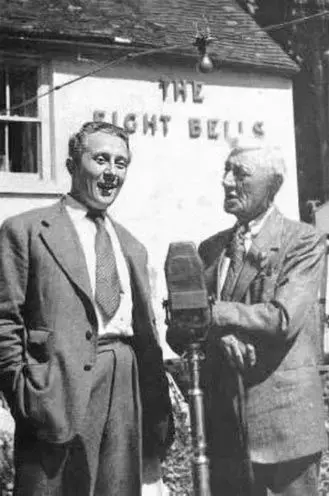
Bob and Ron Copper recording outside the
Eight Bells.
Spencer the Rover
This song was more than likely penned by some wandering minstrel whilst travelling round from town to town, who realised the errors of his ways in reaching Yorkshire.
I first heard it sung in the early 1960s by Bob and Ron Copper, two of the Copper Family, a family of singers of traditional, unaccompanied English folk songs, originally from Rottingdean near Brighton, they now live in the neighbouring village of Peacehaven.
They first made the song popular in Southern England and through a recording they made of them singing, it soon spread far and wide in the burgeoning English Folk club movement. Other versions of the song have been collected in Derbyshire, Nottinghamshire, and Lincolnshire. A version of the song, sung by George Hall, was collected in 1907 by R.A.A. Gatty, in the Yorkshire village of Hooton Roberts, about three miles from my hometown of Mexborough.


